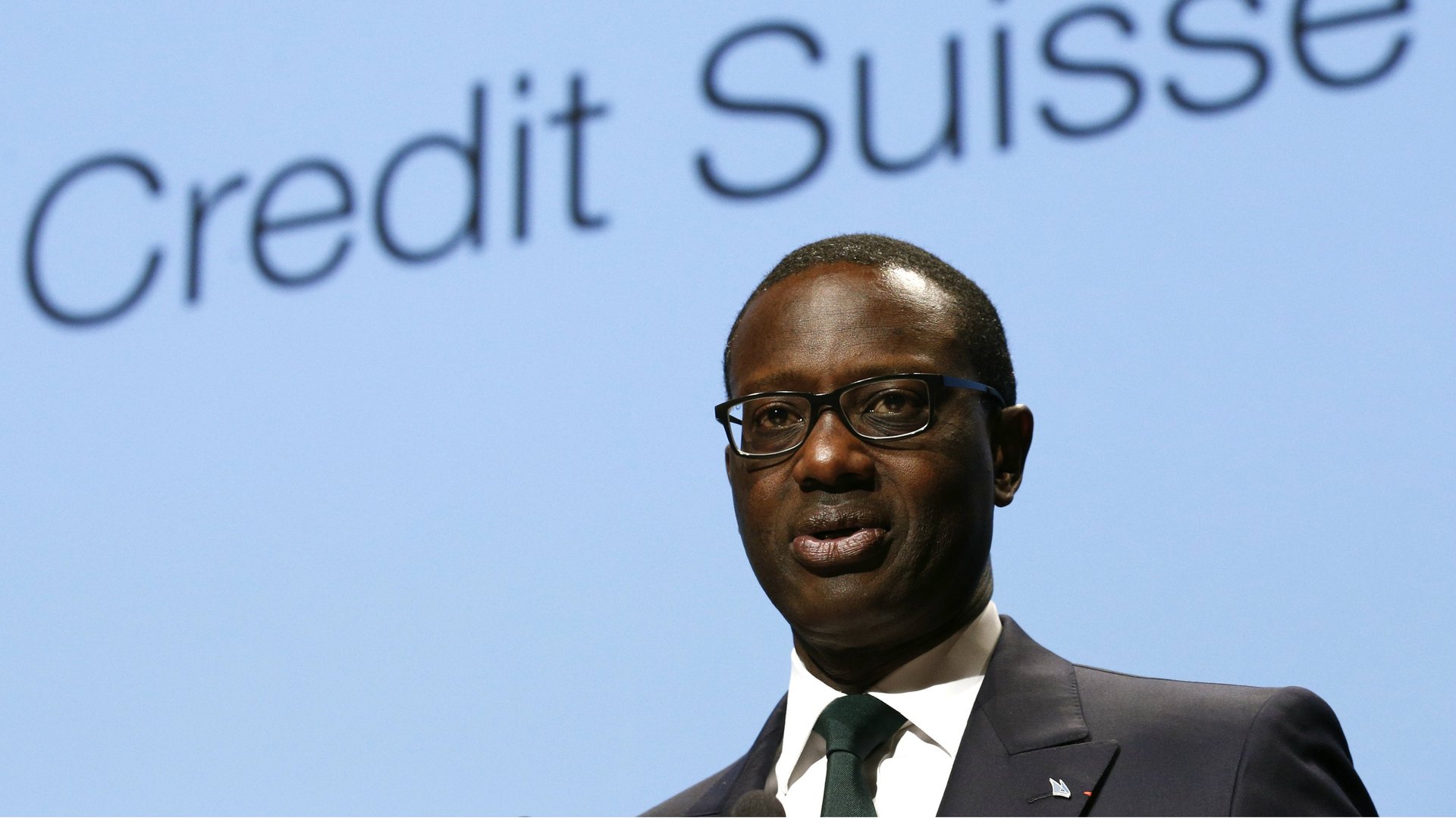Attention, Credit Suisse bankers: Your boss plans to “implement more robots”
Whether banks will replace workers with robots isn’t the question these days—at issue is how many and which roles. Deutsche Bank’s CEO recently hinted that something like half of his 97,000 employees could be replaced by automation. Now, Credit Suisse also says it plans to “implement more robots” (pdf) and boost investment in automation.


Whether banks will replace workers with robots isn’t the question these days—at issue is how many and which roles. Deutsche Bank’s CEO recently hinted that something like half of his 97,000 employees could be replaced by automation. Now, Credit Suisse also says it plans to “implement more robots” (pdf) and boost investment in automation.
The conventional wisdom is that front-office staff like salespeople and investment bankers will be safe from the machines because their jobs rely on relationships. That implies that the highly-paid bankers in hubs like New York, London, and Hong Kong are safe. Back-office workers in lower-cost cities like Salt Lake City are more at risk of redundancy, the thinking goes.
Not everyone agrees: One bank boss said privately that finance companies are looking to automate front-office workers, too, if they can find a way. Trading is increasing electronic and handled by computers, after all. At the same time, JPMorgan just ramped up its staffing in Warsaw, which suggests that not all back-office roles are at risk.
Whatever the case, bank executives are all talking about doing more with machines. By next year, some 75% of financial firms will either explore or implement artificial intelligence technologies, according to Greenwich Associates. Research and customer support functions are expected to be among the most affected.
Bank analysts at Morgan Stanley said they “like the progress on automation” at Credit Suisse so far. The Swiss bank’s compliance processes are as much as 90% faster, at a “fraction” of what they used to cost, according to the analysts.
Will automation ultimately replace bank employees or just make them more efficient? Barclays CEO Jes Staley said at a conference last month that his bank has more, better-paid bank tellers than it did before the ATM came along. Greenwich Associates is less optimistic, and estimates that 15% of the industry’s jobs are at risk.
Credit Suisse says some of the savings from automation will go into hiring more relationship mangers. In a separate presentation about robotics and the broader economy, the bank said it expects automation to create at least as many jobs as it makes obsolete. The bank suggested that schools, governments, and employers should both embrace these technologies as well as prepare to help workers adapt to the inevitable disruption.
For now, at least, executives appear mostly focused on the prospects for greater automation. How they can help workers adapt to the disruption gets far less attention.